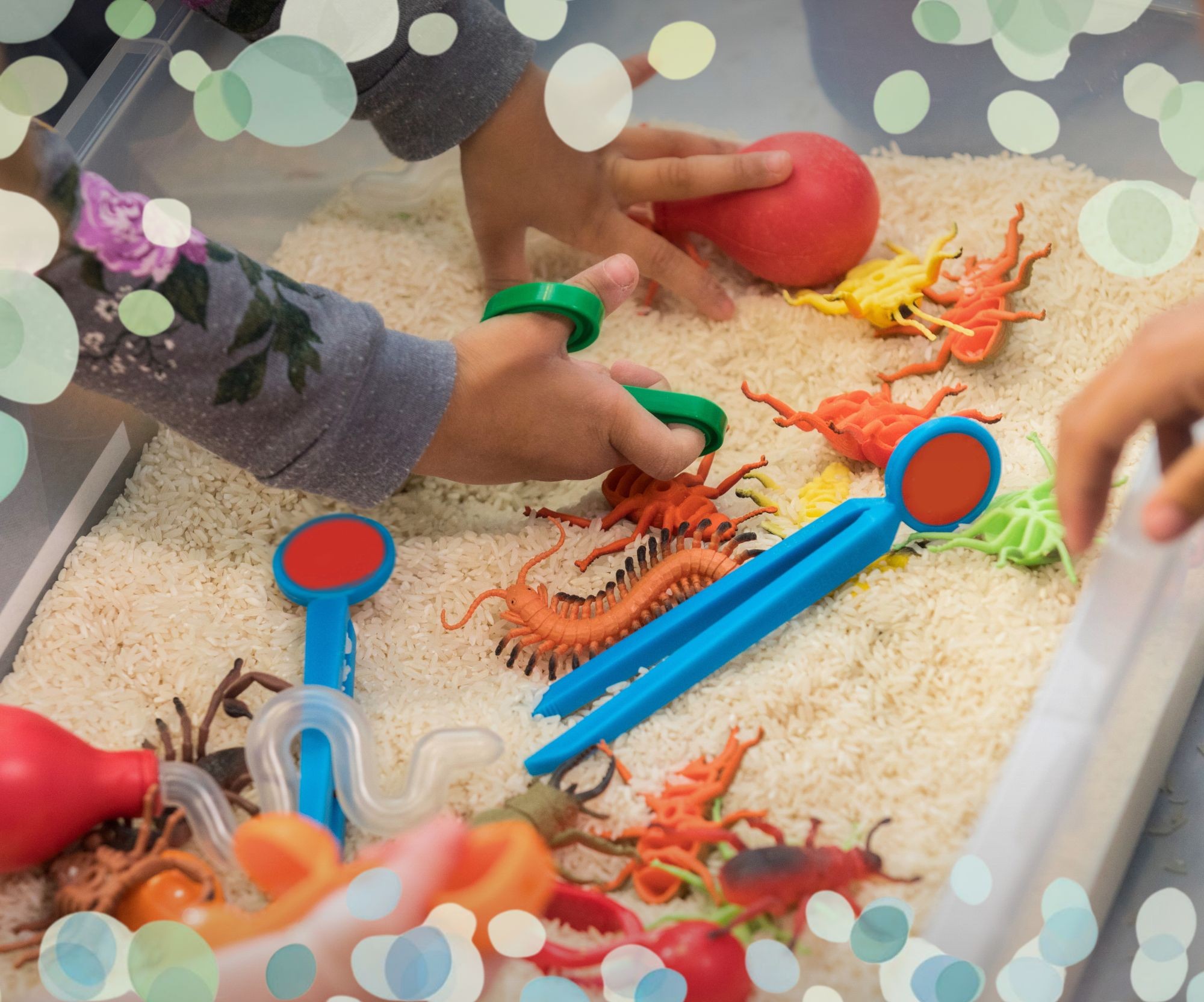Sensory play is a crucial part of early childhood development. Even before they are born, babies are designed to explore the world through their senses. Engaging in sensory play helps to fine-tune motor skills, improve coordination and increase curiosity. Sensory play involves activities that stimulate a child’s senses of touch, smell, taste, sight and hearing, providing a rich environment for active learning and growth.
Why sensory play matters
Children are naturally designed to explore the world through their senses. Participating in sensory play enhances motor skills, boosts coordination and fosters greater curiosity and exploration. It also aids in language development as children articulate their experiences and emotions in relation to their observations and interactions.
Activities for different ages
0 – 3 Months: For newborns, sensory play can be quite gentle. Activities might include soft music, gentle stroking of different textures against the baby’s skin or slowly moving colourful and contrasting objects in their field of vision. These activities stimulate the senses of hearing, touch and sight, which are crucial for early brain development.
3 – 6 Months: At this stage, babies benefit from tactile play. Activities like feeling different textures, exploring soft and hard objects or experiencing the contrasts between warm and cool surfaces are beneficial.
6 – 12 Months: Babies start to explore more with their hands and mouths. Offer them safe items they can chew, shake or bang together, such as rubber toys, textured balls and musical instruments.
1 – 3 Years: Introduce activities involving sand, water or even edible paints made from food colouring. These experiences help toddlers learn cause and effect as well as basic concepts like wet, dry, heavy and light.
3 – 5 Years (Pre-Grade R): At this age, children are ready for more complex sensory toys and materials. Mix elements such as rice, pasta, water beads or kinetic sand with tools for scooping, pouring and measuring to enhance their cognitive and physical skills.
Benefits of sensory play
Sensory play is not only about having fun but is also an educational experience that supports emotional regulation and cognitive development. It encourages children to experiment and solve problems, building the foundations for scientific thinking and reasoning. Additionally, sensory activities are known to have a calming effect on children, particularly those with sensory integration issues.
Incorporating sensory play from an early age can provide children with essential experiences that contribute to their development. By stimulating the senses from birth, children can learn and develop their skills in a playful and engaging way.

